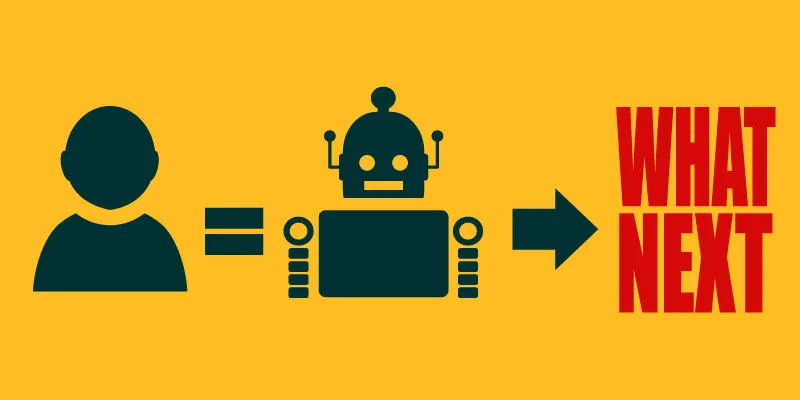The rise of exponential technologies and the potential they hold
The rate of technological, and by extension economic and social, change today is incredible. Both scary and exciting at the same time, we could truly be looking at an astounding promise in the years ahead.
It is a well-known observation that India is not one single country but an amalgamation of many distinct ones. There is enough variety in our languages, foods, demography, and climate, as well as a disparity in our incomes, literacy, and human rights, to keep the world busy just understanding the status quo.

On top of this variety, throw in the technological change taking place at an exponential rate across the globe today. We now have a situation where changes that happened over centuries or generations are now taking place within a decade. If we do not keep track of these changes, we might become redundant well before we check out of this earth.
So, where did this crazy pace begin? And what is this exponential thinking anyway?
I had the honour of working with one of the founders of Intel, Dr Gordon Moore, who was instrumental in observing this leap. We can trace this idea back to 1965 when Dr Moore first predicted that the number of components per integrated circuit would double every year; with some tweaks here and there, this projection has turned out to be largely true.
The 1977 film Powers of Ten by Charles and Ray Eames further popularised exponential thinking – the filmmakers start with an image of a couple picnicking in a park, and demonstrate relative scale by zooming out (by factors of 10, of course) to show the entire universe, with just a few steps.
This observation, coupled with fast paced inventions that took this increase in computing for granted, gave us groundbreaking results in health, travel, and communications, to name a few areas that have seen great advancement. Can one imagine standing in a railway reservations queue for hours to book a ticket anymore? Or wait to be connected to a dear one in another country on a “trunk call”, for days on end? Not to mention the ability to find one’s entire genealogical makeup, including diseases that we are prone to, with one cheek swab. And finally, is there anyone in this world who has not experienced a selfie?
By the time the current generation graduates from college, their knowledge will be outdated. We have entered a world where we are all students for life.
It may be seen as a burden or a boon, depending on our point of view. Just imagine – there is no one country or person who is the keeper of knowledge anymore. Anyone, anywhere can invent something and share the results with the world. These advantages also come with their own challenges. We need to wade through a large body of information to find the most reliable source.
We need platforms to learn about and encourage the development of large-scale exponential technologies, especially to address today’s grand challenges (health, learning, prosperity, food, energy, security, environment, space, water, governance, and disaster resilience). Based in Silicon Valley, Singularity University (SU) was created to answer that need.
India has shot to the top of the charts in the mobile phone revolution, partly because we lacked sufficient landlines. Similarly, technologies of today and tomorrow can enable India to leapfrog our deficiencies and become leaders in our own right. For instance, India, a country where a majority of the people do not have access to basic financial equality, could become the leading country to bring financial equality to all through blockchain or Bitcoin or whatever latest technology we choose to pursue.
If I am frank with myself, I feel both scared and excited by these exponential technologies. I worry about the repercussions on families, friendships, and careers, and what it takes to remain relevant in this fast-paced world. Will we lose out on our emotional intelligence to machine intelligence? Or would machine intelligence force us to climb up the ladder from mundane decisions and truly focus on mindful decisions?
What wins out is the change in our mindsets? As one of the founders of Singularity University, Peter Diamandis famously wrote – we all need to get on to a more abundant mindset than a shortage mindset. Today, everything is accessible and everyone can invent. The only obstacles to our progress are our own convictions and beliefs. If we can truly understand the possibility of these exponential technologies and let our imagination wander, the wonders of the future would open up, and we can create a huge positive impact on this world.
As a Native American saying goes, “We do not live on a land that we inherit from our ancestors, but on a land that we are borrowing from our children.” We have an amazing opportunity to work with our children; to let them live on an earth that they would be proud to leave as their legacy.







